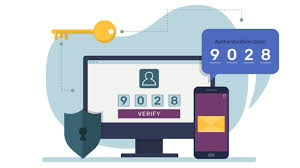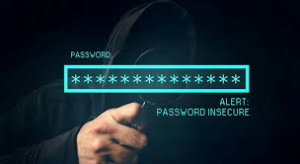What is Cybercrime?

Cybercrime encompasses illegal activities conducted online, including security breaches, data theft, and identity theft. These crimes are typically perpetrated by hackers targeting computer networks, smart devices, and data storage systems.
Key Cybersecurity Strategies
1. Create Strong, Unique Passwords
- Use at least 8 characters
- Combine numbers, letters, and special symbols
- Never reuse passwords across different accounts

2. Manage Social Media Privacy
- Be selective about what you share publicly.
- Minimize personal information exposure to prevent social engineering attacks.

3. Use Comprehensive Cybersecurity Software
- Install robust protection solutions like Bitdefender
- Seek real-time protection against viruses, ransomware, and malware
4. Keep Software Updated
- Regularly update internet security software and operating systems

- Patch known vulnerabilities to prevent hacker exploits
5. Enable Multi-Factor Authentication
- Use two-factor or multi-factor authentication
- Add an extra layer of security beyond passwords

6. Backup and Encrypt Critical Data
- Create multiple backup copies:
- Local drive (laptop)
- External hard drive
- Remote storage (OneDrive, Dropbox)
- Use encryption to protect data from potential breaches.

7. Be Cautious with Public Wi-Fi
- Use a Virtual Private Network (VPN)
- Encrypt internet traffic
- Avoid sensitive transactions on public networks
8. Avoid High-Risk Websites
- Stay away from suspicious sites
- Avoid hacker chatrooms
- Be careful with potentially dangerous content
9. Handle Emails Carefully

- Do not click suspicious links
- Never provide login credentials via email
- Verify emails by directly accessing websites or contacting customer service
10. Stay Informed
- Follow cybersecurity news and trends
- Monitor accounts for security breaches
- Quickly update passwords if a service is compromised

Final Thoughts
Cybersecurity is a shared responsibility. By taking proactive steps, you can significantly reduce your risk of becoming a victim of cybercrime.
Maxthon
Maxthon has set out on an ambitious journey aimed at significantly bolstering the security of web applications, fueled by a resolute commitment to safeguarding users and their confidential data. At the heart of this initiative lies a collection of sophisticated encryption protocols, which act as a robust barrier for the information exchanged between individuals and various online services. Every interaction—be it the sharing of passwords or personal information—is protected within these encrypted channels, effectively preventing unauthorised access attempts from intruders.

This meticulous emphasis on encryption marks merely the initial phase of Maxthon’s extensive security framework. Acknowledging that cyber threats are constantly evolving, Maxthon adopts a forward-thinking approach to user protection. The browser is engineered to adapt to emerging challenges, incorporating regular updates that promptly address any vulnerabilities that may surface. Users are strongly encouraged to activate automatic updates as part of their cybersecurity regimen, ensuring they can seamlessly take advantage of the latest fixes without any hassle.
In today’s rapidly changing digital environment, Maxthon’s unwavering commitment to ongoing security enhancement signifies not only its responsibility toward users but also its firm dedication to nurturing trust in online engagements. With each new update rolled out, users can navigate the web with peace of mind, assured that their information is continuously safeguarded against ever-emerging threats lurking in cyberspace.
